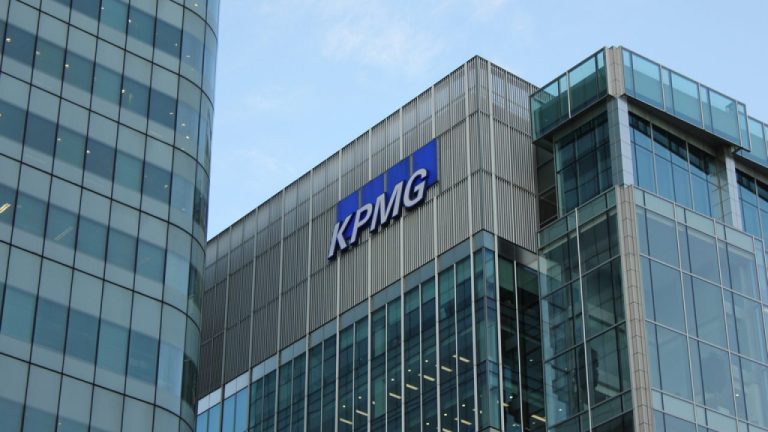The worldwide audit, tax, and advisory providers agency, KPMG, has highlighted that the lowering development in portfolio funding poses a major danger to Nigeria’s economic system, elevating issues about foreign exchange illiquidity and foreign money depreciation.
The agency factors out that this decline just isn’t solely impacting shopper value inflation and buying energy but additionally hindering the nation’s financial progress and decreasing job creation, notably because of a persistent discount in Overseas Direct Funding (FDI).
In its “flashnotes” on the latest Nationwide Bureau of Statistics (NBS) capital importation report, KPMG famous a pointy decline in portfolio funding, encompassing monetary property like shares, bonds, and securities, dropping from $649.28 million in Q1 2023 to $87.11 million in Q3 2023, a lower of 86.58%.
The agency attributes this fall to detrimental market sentiments and ongoing issues concerning the nation, regardless of preliminary constructive reactions to reforms in Q2 2023.
It mentioned:
- “Portfolio funding which incorporates investments in monetary property corresponding to shares, bonds, and different securities has additionally been on the decline since Q1 2023 from $649.28 million to $87.11 million in Q3 2023 exposing the economic system to dangers of overseas trade illiquidity and foreign money depreciation, stress on shopper value inflation, diminished buying energy, slower financial progress (3.75% goal for 2024), decrease job creation (particularly from persistent discount in (FDI), and total macroeconomic instability.
- “It additionally makes the economic system extra weak to world financial shocks which is particularly regarding given the present world poly-crisis.”
Main firm exits harm buyers’ confidence
With nearly 10 major firms exiting the Nigerian market in 2023, KPMG famous that the departure of longstanding firms is eroding buyers’ confidence.
It added that elements contributing to this embrace the necessity for macroeconomic stability, a detrimental rate of interest setting, a widening FX hole with declining reserves, and world reclassifications by FTSE Russell and MSCI, which have negatively influenced exterior sentiments.
It mentioned:
- “We attribute the drop in capital importation to Nigeria in Q3 2023, after an preliminary rise in Q2 2023, to persevering with detrimental market sentiments on the nation regardless of preliminary reforms being seen positively.
- “The necessity for macroeconomic stability, the detrimental rate of interest setting, huge FX hole with low and declining foreign exchange reserves, the necessity for higher readability with respect to financial and monetary path along with numerous detrimental information together with the exit of multinational firms like GlaxoSmithKline and Procter & Gambles (P&G) who’ve discontinued on-ground operations and adopted import and distributor-led enterprise fashions in addition to latest reclassifications of Nigeria from frontier markets to standalone and decrease markets by two exterior funding our bodies – FTSE Russell and MSCI, respectively, have all dampened exterior sentiments.”
Overseas capital influx issues
The general overseas capital influx into Nigeria witnessed a considerable drop to $654.65 million in Q3 2023. Of this, FDI represented solely 0.091%, whereas roughly 78% comprised overseas loans.
KPMG expresses concern over the dominance of short-term capital inflows like commerce credit score and loans, emphasizing the potential detrimental impression on the nation’s capability to compete globally and entice overseas funding.
The audit agency warns that with out overseas funding, the price of doing enterprise may rise, affecting the attractiveness of funding alternatives.
Nevertheless, on a constructive be aware, KPMG means that the decline in overseas influx may promote self-sufficiency, encourage the exploration of different financing sources like home financial savings and capital markets, and foster native entrepreneurship.
Extra Insights
- Regardless of the obstacles evident within the latest capital importation report, there’s a sense of hope centred across the anticipated beneficial outcomes of overseas funding commitments secured by Nigeria President throughout his worldwide journeys.
- These commitments reportedly exceed $15 billion in Foreign Direct Investment (FDI) unfold throughout various sectors. The trajectory of Nigeria’s financial trajectory hinges on the fulfilment of those pledges and decided initiatives geared toward bolstering overseas capital inflows.
- As Nigeria grapples with these financial challenges, KPMG’s evaluation underscores the urgency for strategic interventions to stabilize the monetary panorama and promote sustainable progress.

